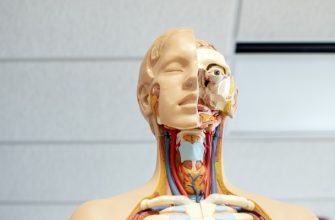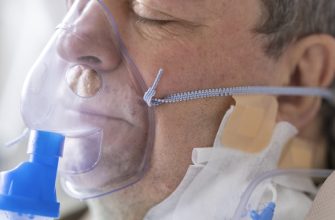- The Essential Role of Oxygen in Human Physiology
- Understanding the Connection Between Oxygen Levels and Mental Health
- Oxygen: The Key to Enhanced Physical Performance and Recovery
- How Oxygen Deficiency Can Impact Your Health
- The Science Behind Oxygen Therapy and Its Benefits
- Exploring the Link Between Breathing Techniques and Well-Being
The Essential Role of Oxygen in Human Physiology
Oxygen plays a crucial role in human physiology, serving as a vital component for maintaining optimal health and well-being. The human body relies on oxygen for various metabolic processes that are essential for survival.
- Cellular Respiration: Oxygen is fundamental for cellular respiration, a process through which cells convert glucose and oxygen into energy. This energy, in the form of ATP (adenosine triphosphate), powers all cellular functions.
- Brain Function: Adequate oxygen levels are critical for brain health. The brain consumes about 20% of the body’s oxygen supply, which is necessary for cognitive functions, memory retention, and overall mental clarity.
- Immune System Support: Oxygen aids in the functioning of the immune system. It assists in the production of reactive oxygen species, which help in combating pathogens and facilitating the healing process.
- Detoxification: The body utilizes oxygen to detoxify harmful substances. Oxygen-rich environments promote the activity of enzymes that help break down toxins, thereby supporting liver function and overall health.
In addition to these physiological processes, oxygen also contributes to maintaining optimal cardiovascular health. Sufficient oxygen levels ensure efficient blood flow and nutrient delivery to tissues, which is essential for preventing conditions such as hypertension and heart disease.
The relationship between oxygen and overall health cannot be overstated. Insufficient oxygen levels can lead to various health issues, including fatigue, cognitive decline, and compromised immune responses. Ensuring adequate oxygen intake through proper breathing techniques and a healthy lifestyle is essential for promoting well-being and enhancing vitality.
Innovative practices, such as oxygen therapy and regular physical activity, can further improve oxygen levels in the body, leading to enhanced health outcomes. By prioritizing oxygen’s role in human physiology, individuals can take proactive steps towards achieving better health and longevity.
Understanding the Connection Between Oxygen Levels and Mental Health
The relationship between oxygen levels and mental health is pivotal in understanding overall well-being. Oxygen is essential for the brain’s functioning, as it fuels cellular processes that are crucial for cognitive performance and emotional stability. Low oxygen levels can lead to various mental health issues, including anxiety, depression, and cognitive decline.
Studies indicate that insufficient oxygen supply may impair neurotransmitter function, which is vital for mood regulation. The brain’s reliance on oxygen underscores the importance of maintaining adequate levels for optimal mental health. When oxygen levels drop, brain cells may not function properly, leading to feelings of lethargy, confusion, and irritability.
- Oxygen and Cognitive Function: Adequate oxygen levels enhance memory and concentration, supporting clearer thinking and better decision-making.
- Oxygen and Mood Regulation: Sufficient oxygen supply can positively influence mood, reducing the risk of anxiety and depressive symptoms.
- Oxygen and Stress Response: High oxygen levels may improve the body’s ability to handle stress, promoting resilience in challenging situations.
Moreover, environments with high oxygen concentration, such as those near water bodies or in green spaces, can significantly benefit mental health. Engaging in outdoor activities in such areas can enhance oxygen intake, fostering a sense of calm and well-being.
In conclusion, maintaining optimal oxygen levels is crucial for mental health. Ensuring adequate oxygen supply through lifestyle choices, such as physical activity, spending time in nature, and proper breathing techniques, can greatly enhance emotional and cognitive well-being. Understanding this connection empowers individuals to take proactive steps towards improving their overall health and mental clarity.
Oxygen: The Key to Enhanced Physical Performance and Recovery
Oxygen plays a crucial role in enhancing physical performance and recovery. It is a vital element that fuels the body during various activities, from everyday tasks to intense workouts. The presence of oxygen in the bloodstream is essential for the production of adenosine triphosphate (ATP), the primary energy carrier in cells. Higher levels of oxygen availability can significantly boost endurance and strength, allowing individuals to perform at their peak.
During exercise, adequate oxygen supply helps in the efficient breakdown of glucose and fatty acids, leading to improved energy output. This process not only enhances athletic performance but also aids in quicker recovery post-activity. When the body receives sufficient oxygen, it can effectively clear out metabolic waste, reducing fatigue and soreness after physical exertion.
- Enhanced endurance and stamina through optimal oxygen utilization.
- Faster recovery times due to improved metabolic waste clearance.
- Increased energy levels during workouts and daily activities.
- Support for muscle repair and growth through adequate oxygen supply.
Furthermore, oxygen has a profound impact on overall health. It improves blood circulation, ensuring that all organs and tissues receive the necessary nutrients and oxygen for optimal functioning. This, in turn, enhances cognitive abilities, mood, and overall well-being. A well-oxygenated body is better equipped to handle stress and maintain a balanced state.
In conclusion, the importance of oxygen cannot be overstated when it comes to enhancing physical performance and facilitating effective recovery. Ensuring that the body receives adequate oxygen is essential for anyone looking to boost their fitness levels and improve overall health.
How Oxygen Deficiency Can Impact Your Health
Oxygen deficiency, also known as hypoxia, can have profound effects on overall health and well-being. The human body relies on oxygen for cellular respiration, which is essential for energy production. When oxygen levels drop, various systems may begin to malfunction, leading to a range of health issues.
One of the most immediate impacts of oxygen deficiency is on the cardiovascular system. The heart requires a constant supply of oxygen to function efficiently. Insufficient oxygen can lead to increased heart rate and strain, potentially resulting in arrhythmias or even heart failure if not addressed promptly.
Additionally, the brain is highly sensitive to oxygen levels. A lack of oxygen can lead to cognitive impairments, such as difficulty concentrating, confusion, and memory problems. Prolonged hypoxia may even result in irreversible brain damage, emphasizing the critical role that oxygen plays in neural health.
Furthermore, oxygen deficiency can weaken the immune system. The body’s ability to fight off infections diminishes when there is not enough oxygen available, making individuals more susceptible to illnesses. This connection highlights the importance of maintaining adequate oxygen levels for overall health and resilience.
- Decreased energy levels and fatigue
- Increased risk of respiratory diseases
- Compromised organ function
- Worsening of pre-existing health conditions
In conclusion, maintaining optimal oxygen levels is vital for ensuring the body functions correctly. Addressing oxygen deficiency through lifestyle changes, such as regular exercise and spending time in fresh air, can significantly enhance overall health and well-being. By understanding the importance of oxygen, individuals can take proactive steps to safeguard their health against the detrimental effects of hypoxia.
The Science Behind Oxygen Therapy and Its Benefits
Oxygen therapy is a scientifically validated treatment that delivers supplemental oxygen to enhance the body’s overall health. This therapeutic approach is based on the understanding that oxygen is a vital element for cellular function and energy production. By increasing the availability of oxygen, individuals can experience numerous health benefits that contribute to their well-being.
The human body relies on oxygen for various physiological processes, including metabolism and the maintenance of homeostasis. When the body receives adequate oxygen levels, it can efficiently produce energy, repair tissues, and support the immune system. This is particularly important for individuals with respiratory issues, chronic conditions, or those recovering from surgery.
- Enhanced Energy Levels: Oxygen therapy can significantly boost energy levels by improving oxygen delivery to cells, leading to increased stamina and reduced fatigue.
- Improved Cognitive Function: Sufficient oxygen supply is crucial for brain health. Enhanced oxygen levels can improve focus, memory, and overall cognitive performance.
- Support for Wound Healing: Increased oxygen availability promotes faster healing of wounds and injuries, as it aids in the regeneration of tissues.
- Reduction in Inflammation: Oxygen therapy can help lower inflammation, making it beneficial for individuals with chronic inflammatory conditions.
- Enhanced Immune Response: Adequate oxygen levels strengthen the immune system, helping the body to fight off infections more effectively.
Research supports the effectiveness of oxygen therapy in various clinical settings. Studies have shown that patients receiving oxygen therapy experience improved outcomes in conditions such as COPD, asthma, and other respiratory diseases. The therapy not only alleviates symptoms but also enhances overall quality of life.
In conclusion, oxygen plays a fundamental role in maintaining health and well-being. The benefits of oxygen therapy extend beyond simple respiratory relief, offering a comprehensive approach to enhance physical vitality and cognitive function. Through the strategic application of oxygen therapy, individuals can unlock the potential for improved health outcomes and a better quality of life.
Exploring the Link Between Breathing Techniques and Well-Being
The relationship between breathing techniques and overall well-being is a topic of significant interest in health and wellness discussions. Proper breathing is essential for maximizing oxygen intake, which plays a crucial role in maintaining optimal health. Various breathing methods can enhance oxygen delivery to the body’s tissues, thereby improving physical and mental states.
Different breathing techniques, such as diaphragmatic breathing, box breathing, and alternate nostril breathing, have been shown to reduce stress levels and promote relaxation. These methods encourage deeper inhalation, which increases oxygen levels in the bloodstream and can lead to improved cognitive function and emotional balance.
- Diaphragmatic Breathing: This technique involves engaging the diaphragm fully, allowing for deeper breaths that enhance oxygen absorption.
- Box Breathing: A structured breathing method that involves inhaling, holding, exhaling, and pausing for equal counts, promoting a calm state.
- Alternate Nostril Breathing: This practice balances the body’s energy and can improve oxygen flow, leading to enhanced mental clarity.
Research indicates that individuals who consistently practice these techniques report higher levels of well-being. Enhanced oxygen levels can lead to better mood regulation, reduced anxiety, and improved physical endurance. Integrating these practices into daily routines can significantly impact overall health.
Incorporating breathing exercises into daily life does not require extensive training and can be easily adapted. Simple techniques can be practiced anywhere, making them accessible tools for enhancing well-being. The synergy between breathing and health highlights the importance of oxygen in promoting a balanced and healthy lifestyle.








